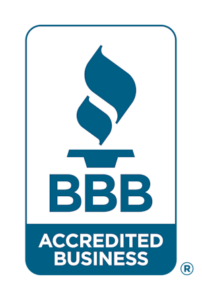
The technology is all around us and it’s no big secret that we should have some balance in this department in our lives. But, when it comes to the professional world versus the social world, is there a balance to oversharing, being formal, and general overuse of technology?
In the real estate industry technology is now king. We send things through email, files through text, and can practically do everything on our phones. But where is the balance between social interaction, technology, and real relationships? You want to show your clients that you are well versed in tech-savvy instruments and yet remain relational when needed.
I read this article today in Realtor magazine about this exact topic and while this is a lengthy article, I’d like to summarize some of the main points in the article and add my own spin on it. Author Melissa Tracey gave three offenses that many people do with technology both personally and in their business. Let’s break the three down and talk about a more appropriate way to use technology for good medicine evil.
Author Melissa Tracey gave three offenses that many people do with technology both personally and in their business. Let’s break the three down and talk about a more appropriate way to use technology for good medicine evil
#1. Oversharing.
I understand that on Facebook we sometimes post pictures of our dinner or maybe a cute family photo but when we go overboard with kitten videos, multiple vacation photos (that seem more like bragging then sharing) and post so many times a day that people just want to unfriend us (which they usually will just hide us), then we’ve crossed into the realm of oversharing. We are a “me” society. The term “Sophie” is now in the dictionary we’ve become so obsessed with ourselves that we have forgotten to look outward. We’ve shared so much about our own lives, we have almost forgotten that there are other people’s lives out there to be a part of.
Melissa makes several points to oversharing and how to limit all the talk about me, me, me.
First, don’t make every post about you. If everything you only talk about is you, your life, your emotions, and your drama, people will start to tune you out.
Seek a connection. Really reach out, comment, and talk to other people on their social media networks tagging them, and truly being interested. You’ll be surprised at how many relationships you can foster.
Think about how much value the post has before publishing. This is really information that I want out there forever? (This is something to do before being a neighbor created. Never post drunk).
#2. Melissa’s second offense is overuse.
Are you posting on twitter or social media outlets 10 to 30 times a day? That’s probably overload and more people will just hide or unfollow you then actually find what you are saying to be of value. Don’t just simply coast for the sake of throwing up a post. It’s okay not to be connected all the time. There is now a new word for this rush of anxiety and fear some people get when they realize they are disconnected. It’s called Nomophobia. And a recent study estimated that up to 67% of the population could have this fear. That’s crazy! We need to be able to unplug, step away, and look at the world in our immediate circle, not the global circle that is the Internet.
Here are some simple ways to avoid technology overuse.
Monitor your use. Is your phone the first thing you grab in the morning? If you wake up in the middle of the night do you check it? You may have a problem.
Turn off your phone if you are around other people. It shows that you are generally concerned for their attention and you will gain a lot of respect when people know you really care.
Pay attention to nonverbal messages. If you are always glued to your screen what messages that sending to other people? Nowadays, nobody watches a concert; they instead watch it through their phones while videotaping it. That’s probably a video they’ll never watch again.
#3. Melissa’s third offense is being overly informal.
There is a point to being responsive and on the ball, especially when it comes to customers, but you also don’t want to be so informal that you send blank emails, abbreviations in texts and use poor grammar. A study shows that 43% of people surveyed would be less inclined to tour the home if the online listing contains misspellings or improper grammar. This sends a signal to people the details are not important. Even if it’s only subconscious if the agent misses these small details, are they missing the bigger ones later. We all understand that people are human and typos happen, but if it happens too often and just becomes ridiculous, it simply a lack of caring.
The bottom line is to slow down, proofread, edit, and don’t be abrupt. Emotions can be misconstrued over text and email very easily. Ask yourself if the text is important here or a phone call be better? Try not to get too comfortable using technology because don’t forget, on the other end there, is an actual human being.





